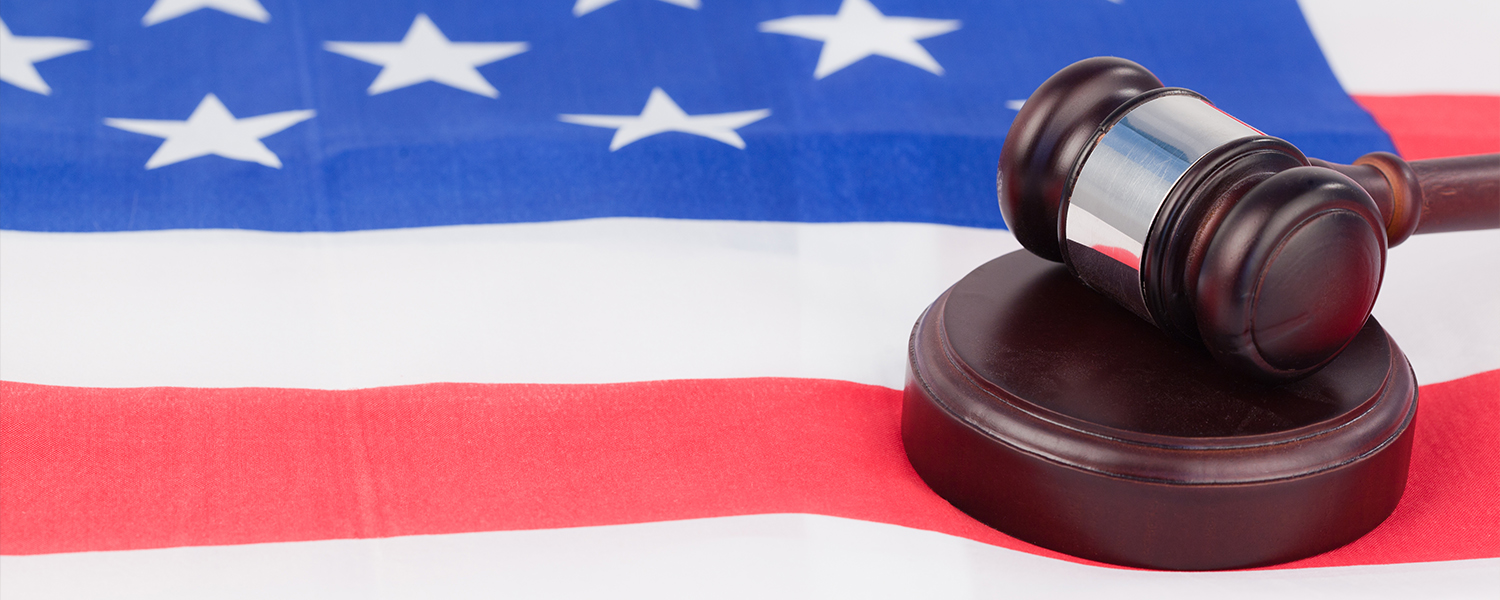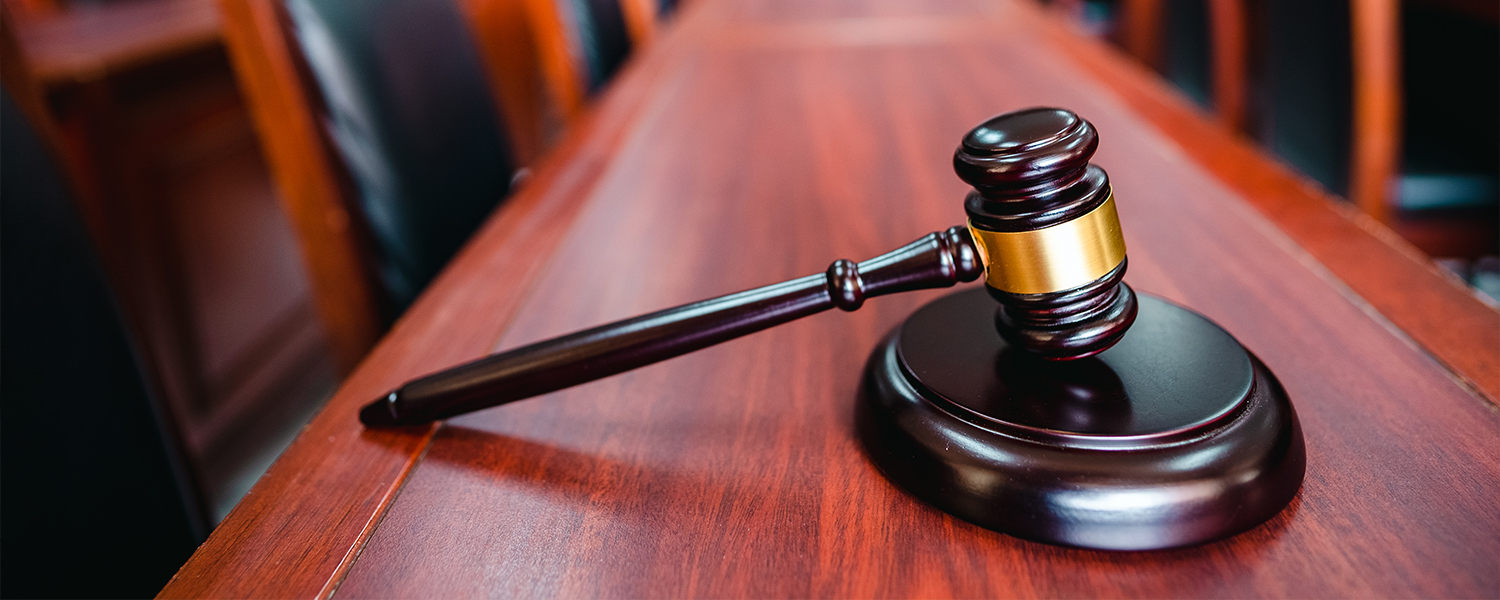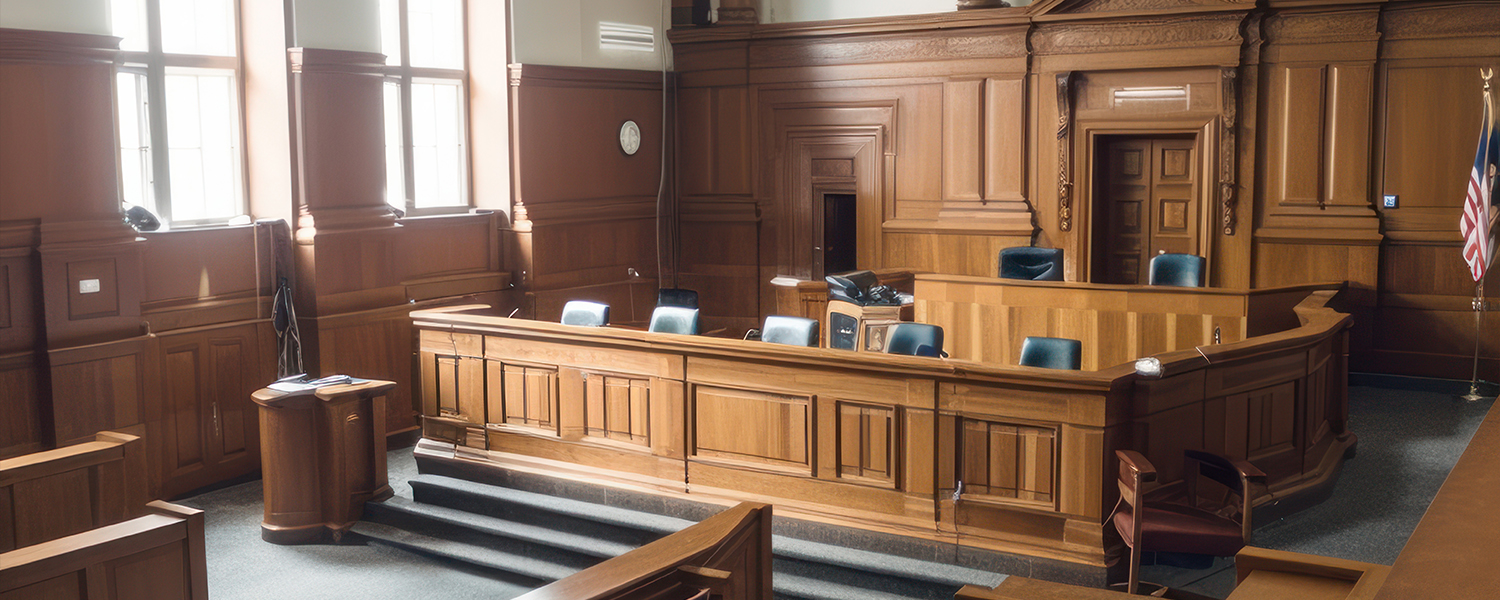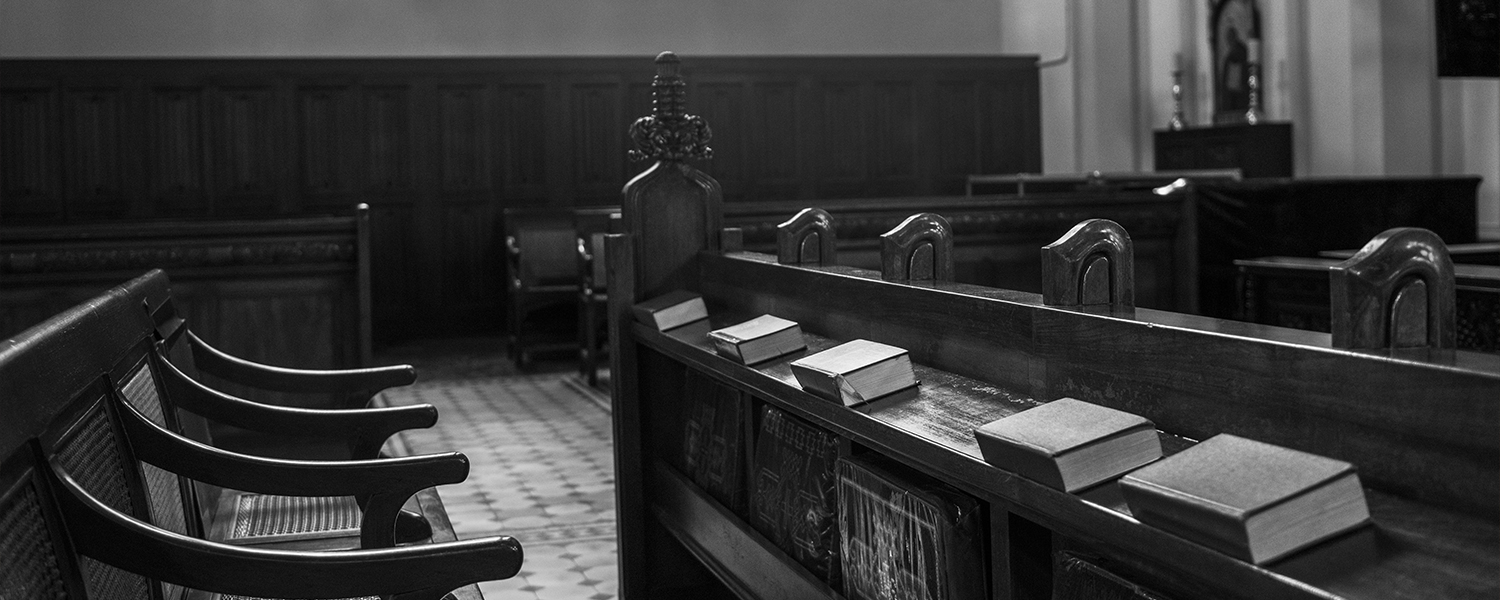Personal Injury News: Pick Of Last Month: October-2024
California Residents: Claim Your Share of $27.5m Settlement

If you lived in California at any time in the past seven years, you might qualify for compensation from a $27.5 million settlement reached in a class action lawsuit against media giant Thomson Reuters.
Filed in 2020 by an East Bay activist and an Oakland-based journalist, the lawsuit focused on Thomson Reuters' use of its CLEAR platform, a tool marketed to law enforcement and government agencies for investigative purposes.
Unlike the CLEAR airport security program, Thomson Reuters' CLEAR aggregates and provides access to a broad range of data on U.S. citizens, including photos, identifying details, and other personal information.
The complaint, filed on behalf of all those affected, argued that Thomson Reuters collected this data without consent and then sold it to corporations, government agencies, and law enforcement, creating in-depth profiles that included criminal records, family connections, financial status, and employment history. The plaintiffs alleged that most individuals had no idea this was happening and received no compensation.
Thomson Reuters has denied any wrongdoing, yet agreed to the settlement, which includes $27.5 million for affected Californians. Additionally, the company committed to deleting CLEAR data related to California residents who request removal and verify their identity.
This settlement reflects ongoing privacy concerns about the monetization of personal data without consumer awareness or permission.
Yieldstreet, Investors Settle $6.2m Sunken Ship Scrap Dispute

YieldStreet, a digital alternative investment platform, has once again agreed to a multimillion-dollar settlement with investors who faced significant losses from ship-scrapping loans gone awry.
This recent settlement, totaling $6.2 million, follows a class action lawsuit filed in 2020 by a group of investors against YieldStreet. The settlement, announced in a federal court filing in Manhattan, includes both cash compensation and waived fees for affected investors.
This agreement marks YieldStreet’s second major payout related to ship-scrapping investments within just over a year. In September 2023, the company settled separately with the Securities and Exchange Commission (SEC), paying $1.9 million to resolve allegations of non-disclosure.
The SEC had charged YieldStreet with failing to inform investors about critical risks in a $14.5 million securities offering involving a retired ship slated for dismantling and sale. Shipbreaking, or vessel deconstruction, involves purchasing old ships, beaching them, cutting them into parts, and selling them for scrap. An attorney representing the investors explained that YieldStreet raised funds for shipbreaking projects, yet some of these ships vanished before generating returns.
According to the class action court filing, by early 2020, six of YieldStreet’s maritime deconstruction investments, all tied to a single, unidentified borrower, had defaulted, resulting in approximately $87 million in losses for investors. Additionally, a separate YieldStreet offering related to a Louisiana oil and gas borrower led to a $12 million default in 2019, and that borrower subsequently filed for bankruptcy.
YieldStreet’s challenges with transparency, as alleged by the SEC, date back to September 2019 when it issued securities to finance a loan for ship transportation and dismantling. The SEC’s investigation found that the loan’s primary collateral was the ship itself, which was to be broken down and sold. YieldStreet’s right to seize the vessel in case of default was considered the most important security backing the investment, yet the company allegedly failed to disclose risks that could have compromised this right.
According to the SEC, YieldStreet was aware of red flags, including reports from YieldStreet affiliates indicating that other vessels securing similar loans from the same borrower had been deconstructed without notice or payment, sometimes with tracking systems deactivated, making the ships untraceable.
Despite these warnings, YieldStreet proceeded with the 2019 offering, omitting this material information from investors. Ultimately, the SEC alleged that the borrower dismantled the ship securing the September 2019 loan and misappropriated proceeds from the deconstruction, leaving investors with significant losses.
Alibaba Settles Class-Action Lawsuit for Nearly $500 Million

Alibaba Group Holding has agreed to a USD 433.5 million settlement in a longstanding securities fraud lawsuit in a Manhattan federal court.
This class-action case, which accused the Chinese e-commerce powerhouse of misleading investors about its competitive practices and the failed IPO of its affiliate Ant Group, has been active for nearly four years. With final approval pending in the US District Court for the Southern District of New York, this settlement would rank among the 50 largest securities fraud settlements in the U.S. since 1995 if it proceeds.
The shareholder lawsuit dates back to 2020, following the unexpected cancellation of Ant Group’s USD 34.5 billion IPO by Chinese regulators. Investors argued that Alibaba and two of its executives made materially misleading statements about the likelihood of the IPO's success and Ant Group’s growth potential. Shareholders also claimed that Alibaba hid information about monopolistic practices, alleging that the company restricted merchants to selling exclusively on its platform. This anticompetitive behavior eventually led to a USD 2.8 billion fine imposed by Chinese regulators.
Initially, the case involved both claims related to the Ant Group IPO and antitrust issues tied to Alibaba’s business practices. However, in a significant decision last year, the presiding judge narrowed the scope of the lawsuit, dismissing the allegations related to the Ant Group IPO but allowing claims related to monopolistic practices to move forward.
Although Alibaba has not admitted any wrongdoing or liability in the settlement, the company explained in a regulatory filing that the decision was made to avoid the financial costs and complexities of prolonged litigation.
This settlement is not Alibaba’s first encounter with high-stakes securities litigation in the U.S. Southern District of New York. In 2015, Alibaba resolved another major lawsuit related to its 2014 IPO, agreeing to a USD 250 million settlement. That case stemmed from claims that Alibaba had misled investors by not disclosing key discussions with Chinese regulators regarding counterfeit goods sold on its platforms, particularly Taobao, a popular e-commerce site. Just two months before the USD 25 billion IPO—a then-record-setting offering—the company reportedly had discussions with China’s State Administration for Industry and Commerce (SAIC) concerning counterfeit merchandise on Taobao. The SAIC allegedly warned Alibaba of severe penalties unless it improved its counterfeit oversight.
In early 2015, the SAIC released a report stating that less than 40% of goods on Taobao were authentic, leading to a drop in Alibaba's share price and sparking investor claims that the report’s publication had been deliberately delayed to prevent it from affecting the IPO. Like the current settlement, this earlier one also included no admission of liability from Alibaba but concluded the claims brought by investors who held American Depositary Shares and options prior to the report’s release.
The current USD 433.5 million settlement aims to compensate shareholders for financial losses they allege were caused by Alibaba’s monopolistic practices. By agreeing to this settlement, Alibaba moves to close yet another chapter of legal challenges over its competitive practices and transparency issues that have repeatedly troubled its relationship with global investors.
Key Bridge Collapse Lawsuit Ends in Civil Settlement

The companies that own and operate the vessel involved in the March collapse of the Francis Scott Key Bridge have reached a settlement in a civil lawsuit filed by the U.S. Department of Justice (DOJ) in September.
Grace Ocean Private Limited and Synergy Marine Private Limited agreed to pay $101.9 million to resolve the DOJ’s civil claim, which sought $103.1 million under the Rivers and Harbors Act, Oil Pollution Act, and general maritime law, according to a DOJ news release.
Following the bridge collapse, approximately 50,000 tons of steel, concrete, and asphalt had to be cleared from the Fort McHenry Channel, with temporary channels set up to minimize economic impact and alleviate congestion at the Port of Baltimore. By June 10, the channel was fully cleared, allowing the port to reopen for commercial navigation.
"Today’s settlement marks a significant milestone, ensuring that the costs of federal cleanup efforts in the Fort McHenry Channel are covered by Grace Ocean and Synergy rather than the American taxpayer," stated the Principal Deputy Associate Attorney General, noting the tragic nature of the disaster, which claimed six lives and caused extensive damage.
The DOJ’s civil lawsuit was part of a broader legal action initiated by the vessel companies, who had sought to limit their liability following the incident. Notably, the settlement does not include costs for rebuilding the bridge, which is owned and maintained by the state of Maryland. Separate legal actions by the city of Baltimore and the state are still pending.
A representative for the vessel’s owners clarified that this civil settlement does not imply liability in other ongoing claims. Grace Ocean also recently paid $97,294 to the U.S. Coast Guard’s National Pollution Fund Center for oil pollution prevention expenses tied to the incident, as noted by the DOJ.
Judge Approves New $375M Settlement for UFC Fighter Lawsuit

A federal judge has granted preliminary approval for the UFC’s longest-running fighter pay lawsuit, two months after initially blocking an earlier settlement.
The reworked agreement, valued at $375 million, was reached last month between the UFC and approximately 1,100 former fighters. The U.S. District Court Judge had previously halted the original deal, which covered two separate fighter pay lawsuits, citing concerns over compensation levels.
If the process advances smoothly, the average payout for each fighter in the settlement could be around $250,000, with payments potentially beginning by mid-next year. “This is a monumental achievement providing significant relief to hundreds of MMA fighters,” said the lead plaintiff's attorney, praising the representative plaintiffs for their decade-long effort.
The lawsuit, first filed in December 2014, includes former UFC fighters who competed between December 2010 and June 2017. The UFC expressed approval of the judge’s preliminary decision, stating, “We are pleased to be another step closer to closing the case.”
Previously, in March, UFC had agreed to a separate $335 million settlement for a newer lawsuit involving around 1,200 fighters who fought from July 2017 onward. This separate case, which includes another retired UFC fighter as lead plaintiff, is not covered by the recent $375 million agreement. Attorneys representing fighters in the ongoing suit remain committed to pursuing “significant business changes and more damages” against the UFC in this second antitrust case.
Following the preliminary approval, the process will enter a three-month period to finalize the terms. This includes determining legal fees and allowing class members to voice objections. A final approval ruling is expected after this period, with funds anticipated to be distributed within about 90 days of finalization.
Since the case began, UFC was acquired by Endeavor in 2018, which later merged UFC with WWE to form TKO Group.
$3.3m Settlement for Unconsented Call Recordings by Allstate

If you received a call on your cell phone from Allstate Insurance Company between February 1, 2022, and December 31, 2022, and were not informed the call might be recorded, you could qualify for compensation from a recent $3.3 million class action settlement.
The court has granted preliminary approval, meaning the settlement terms are conditionally accepted but not yet final. The final approval hearing is set for January 10, 2025, when the court will decide if the settlement is fair and sufficient. If the settlement is approved without appeals, payments will follow.
This guide explains the details of the Tobajian v. Allstate Insurance Company lawsuit, covering eligibility, steps for filing claims, and payout expectations. It provides everything you need to decide whether to join, opt out, or object by the October 30, 2024, deadline.
The lawsuit alleges that Allstate violated California's Invasion of Privacy Act (CIPA) by recording calls without proper disclosure. Allstate denied any wrongdoing but agreed to pay $3.3 million to resolve these claims. The settlement applies to California residents whose cell phone calls were allegedly recorded without being informed.
If you’re part of the settlement class, there are specific steps to follow to file a valid claim. Eligible participants may expect compensation, though the exact amount will depend on factors such as the number of valid claims. Alternatively, if you disagree with the settlement terms, you can opt out or file an objection, which allows you to retain the right to pursue a separate lawsuit or seek modifications to the terms.
Staying in the class and filing a claim is often the simplest way to receive compensation. However, if you believe you’ve suffered significant damages, opting out to pursue individual litigation may be a better option. Objecting to the settlement allows you to remain in the class while advocating for changes, but deadlines are critical; missing them means you forfeit both the money and your right to sue separately.
For assistance, visit the official settlement website, contact the settlement administrator, or consult a consumer law attorney. Class action settlements can have lasting effects on your rights, so it’s essential to review the details of the claims being resolved and consider how much you might recover by participating. If you’re uncertain, a class action attorney can offer personalized guidance.
In summary, this Allstate settlement offers compensation for potential privacy violations, though Allstate maintains it has not broken any laws. If eligible, be sure to file a claim by the deadline, or, if you disagree with the settlement, opt out or object. Doing nothing means forfeiting any potential payout and losing the right to sue independently.
Make an informed decision by reviewing court documents, asking questions, and considering professional advice. Whether you stay in the class, opt out, or object, ensure you understand the implications for your legal rights.
Penn State Settles Cybersecurity Violation Claims for $1.25m

Pennsylvania State University (Penn State) has agreed to a $1.25 million settlement to address allegations that it violated the False Claims Act by failing to meet cybersecurity requirements in 15 contracts or subcontracts with the Department of Defense (DoD) and the National Aeronautics and Space Administration (NASA).
These allegations spanned from 2018 to 2023 and centered on Penn State's reported failure to comply with specific cybersecurity controls required by its contracts with these federal agencies, as well as its insufficient development of action plans to resolve identified deficiencies.
The DoD mandates that contractors handling sensitive defense information assess and report on their cybersecurity compliance. This process includes providing summary scores that reflect the state of cybersecurity measures on contracting systems used to store or access sensitive defense information.
According to the U.S. government, Penn State submitted cybersecurity scores that showed some required controls were unimplemented. However, the university allegedly misrepresented the deadlines by which it would implement these controls and failed to develop plans of action to address the gaps. Furthermore, it was alleged that Penn State did not use an external cloud service provider compliant with DoD’s security standards for protected defense information on some contracts.
Principal Deputy Assistant Attorney General and head of the Justice Department’s Civil Division emphasized that universities receiving federal funds must rigorously adhere to cybersecurity requirements to safeguard sensitive government data.
Under the Justice Department’s Civil Cyber-Fraud Initiative, the department is increasing efforts to hold contractors accountable when they neglect these contractual obligations, which are designed to protect sensitive government information from cyber threats.
Special Agent in Charge of the Naval Criminal Investigative Service (NCIS) Economic Crimes Field Office noted that, given the rise in cyber threats, robust cybersecurity practices are crucial for protecting the DoD’s research and procurement activities. NCIS is actively working alongside federal partners to investigate entities that fail to implement required security controls on contracts involving critical defense information.
The DoD Office of Inspector General's Defense Criminal Investigative Service (DCIS) also stressed the importance of adhering to cybersecurity specifications in defense contracts. The DCIS, with its law enforcement and DoJ partners, remains committed to investigating and addressing false claims that compromise the security of DoD data and programs.
The Assistant Inspector General for Investigations at NASA’s Office of Inspector General (NASA-OIG) highlighted the vital need to safeguard both NASA and DoD data from unauthorized access. The inability of Penn State to adequately address known security deficiencies not only put sensitive information at risk but also undermined broader cybersecurity efforts. NASA-OIG is dedicated to holding accountable any organization that fails to meet critical security standards, as illustrated by the resolution of this case.
The Civil Cyber-Fraud Initiative was launched on October 6, 2021, by the Deputy Attorney General to enforce cybersecurity accountability under the False Claims Act. This initiative focuses on prosecuting companies and individuals who compromise sensitive information by knowingly providing insufficient cybersecurity services, misrepresenting their security practices, or failing to monitor and report cybersecurity incidents as required.
This settlement resolves a lawsuit filed under the False Claims Act’s whistleblower provisions. These provisions allow private individuals to sue on behalf of the government if they believe that false claims for government funds have been made, with the opportunity for whistleblowers to receive a share of any financial recovery. In this case, a former chief information officer for Penn State’s Applied Research Laboratory, who filed the original suit, will receive $250,000 from the settlement.
The case’s resolution was achieved through a coordinated effort led by the Civil Division's Commercial Litigation Branch, Fraud Section, and the U.S. Attorney’s Office for the Eastern District of Pennsylvania. Additional support came from multiple federal agencies, including NCIS, NASA-OIG, DCIS, the Army Criminal Investigation Division, the Naval Audit Service, the Defense Contract Management Agency’s Defense Industrial Base Cybersecurity Assessment Center, and the Air Force Materiel Command.
This settlement underscores the federal government’s commitment to enforcing cybersecurity standards for entities handling sensitive information on behalf of the government. As cyber adversaries become increasingly sophisticated, the importance of these requirements cannot be overstated, especially for entities like universities involved in critical research and development projects funded by federal contracts.
The settlement serves as a reminder that organizations working with government agencies must uphold stringent security measures to protect sensitive information from unauthorized access and potential national security risks.
Judge Upholds $38M Verdict Against Chiquita

In June 2024, a federal court jury found Chiquita Brands International liable for financing Colombia’s paramilitary group, the United Self-Defense Forces of Colombia (AUC), and awarded a total of $38 million to 16 plaintiffs whose loved ones were murdered by the AUC.
Each plaintiff received an award of at least $2 million. On October 18, 2024, the judge overseeing the case rejected Chiquita's request to reduce the awards to approximately $50,000 per plaintiff, upholding the jury's original judgment.
The jury concluded that Chiquita knowingly funded the AUC, a recognized terrorist group responsible for severe human rights abuses. From 1997 to 2004, Chiquita allegedly funneled over $1.7 million to the AUC, contributing to violent acts and numerous deaths, including those of innocent civilians in Colombia’s Urabá and Magdalena regions. This trial specifically addressed the deaths of nine AUC victims.
This ruling is notable as it marks the first time an American jury has held a major U.S. corporation accountable for complicity in human rights abuses in a foreign country. The broader litigation against Chiquita encompasses hundreds of additional victims.
Chiquita argued that Colombian law should limit damages to a fraction of the amount awarded by the jury. However, the court found that Colombia does not impose damage caps and, even if it did, such limits would not apply to Chiquita, a U.S.-based company.
The case, led by EarthRights, was initially filed in July 2007 and later combined with other cases against Chiquita in 2008. Since then, it has navigated numerous legal challenges and appeals before reaching this trial. This historic judgment against Chiquita highlights the potential for American corporations to be held liable for human rights violations linked to their overseas operations.
Akron Settles for $4.8m With Family of Man Killed by Police
The family of a man who was fatally shot by Akron police in a barrage of 94 bullets after he allegedly fired at least one shot from his car will receive a $4.8 million settlement from the city.
The incident, which began as a traffic stop on June 27, 2022, resulted in the man being struck 46 times, igniting citywide protests and straining police-community relations.
Although a grand jury declined to indict the officers involved, the man's family filed a federal lawsuit, accusing the officers of excessive force and alleging a "culture of violence and racism" within Akron’s police department.
According to the investigation, police initially attempted to stop the man due to a broken taillight and rear license plate light. When he failed to pull over, officers pursued him, and they claimed he fired a shot from his vehicle before fleeing on foot. A state investigation found that after abandoning his moving car, he ran from the police, ignored commands, and allegedly made movements that led officers to believe he was reaching for a weapon.
The settlement announcement from the city noted ongoing discussions with the family and community members to improve police procedures. As part of policy changes, Akron police officers are now prohibited from pursuing vehicles solely for equipment violations. A family attorney stated that the settlement brings more than financial compensation, highlighting significant policy reforms achieved through the litigation.
The family’s attorneys criticized the state investigation, arguing it was biased toward police and disputing the claim that the man directly targeted officers when he fired his weapon. They maintained that his actions did not justify the level of force used.
The eight officers involved were initially placed on leave, later reassigned to desk duty, and eventually reinstated to active duty in February. The family’s legal team said they would provide further comments once the court finalizes the settlement.
LA Archdiocese Settles $880M with Clergy Abuse Victims

The Archdiocese of Los Angeles has agreed to pay $880 million to settle claims of clergy sexual abuse spanning several decades, marking one of the largest single settlements of its kind in the United States.
This agreement comes after months of negotiations between attorneys representing 1,353 survivors and the archdiocese. The settlement covers abuse allegations that have led to over a quarter-century of litigation against the country’s most populous archdiocese.
The plaintiffs, who accuse local Catholic priests of horrific abuse, will receive compensation as part of an arrangement overseen by a process independent of the archdiocese. The archdiocese has previously paid $740 million in settlements to victims, meaning this latest settlement will push the total payout to over $1.5 billion.
In a statement, Archbishop of Los Angeles expressed deep regret for the incidents, saying, “I am sorry for every one of these incidents, from the bottom of my heart,” and hoped the settlement would bring some healing to the survivors. He added that he believed the agreement was a fair resolution to the claims.
While acknowledging that no amount of money could undo the harm done, attorneys representing the plaintiffs emphasized the justice in holding the church accountable. They noted that the survivors had endured decades of suffering, with many survivors passing away before seeing justice.
This settlement, which will be financed through archdiocese investments, reserves, bank financing, and other assets, also includes contributions from certain religious orders and parties named in the litigation. The settlement represents a significant step toward resolving the legacy of clergy sexual abuse in the Catholic Church.
GA EV Battery Maker Settles Fire Lawsuit for $31M

SK Battery America, a North Georgia-based electric vehicle battery manufacturer, has agreed to a $31 million settlement with Metro Site recycling center, which was destroyed in a fire in July 2023.
The blaze occurred after the recycling facility unknowingly received lithium-ion battery scraps mixed with other recyclables from SK Battery’s nearby factory.
Metro Site, which is not authorized to handle batteries, had no knowledge of the materials in the shipment. The incident led to an investigation by Georgia’s Environmental Protection Division, resulting in a $33,000 fine against SK Battery. While the company did not admit liability in the settlement, it agreed to pay $20 million in punitive damages and $11 million for tort-related claims to Metro Site.
“SK Battery America values its partnership with the Georgia community and is committed to having a positive impact on the area,” the company said. The settlement underscores the risks associated with the growing electric vehicle and battery industry, which has attracted significant investments in Georgia, transforming it into a national manufacturing hub.
The fire in 2023 was one of several incidents at Metro Site caused by battery-related materials. Since 2020, Banks County Fire Chief noted that local firefighters have responded to four fires at the facility due to battery scraps. The 2023 blaze, which burned for four days, required 3 million gallons of water to extinguish.
In addition to the settlement with Metro Site, SK Battery is facing a separate lawsuit from Banks County, seeking compensatory damages for the significant resources used to fight the fire. The county also claims the fire posed a threat to nearby Banks Fire Station 31, which is adjacent to Metro Site. This lawsuit is still ongoing. SK Battery has implemented stricter procedures for handling and disposing of battery materials in response to the incident.
NYC Man Wins $90M After Losing Limbs in Subway Accident

The MTA could be facing a hefty $90 million payout following a lawsuit in which a Brooklyn man, who was severely injured when a train ran over him after he fell onto the tracks while intoxicated, won a massive judgment.
The plaintiff, a 56-year-old man, lost one of his legs, his hip joint, and most of an arm in the June 2018 incident, leaving him unable to ever work again. The case, which resulted in one of the largest awards ever given to a plaintiff against the MTA, was decided in Brooklyn last month.
Despite the fact that the man had fallen onto the tracks due to heavy drinking, his attorney argued that the train operator’s failure to stop in time was the primary cause of the devastating injury. The lawyer stated that the operator had ample time to prevent the accident but did not follow the MTA's own procedures for emergency situations, such as pulling the emergency brake when alerted by people on the platform.
The incident occurred at the Broadway Junction subway station in East New York. After a night of drinking, the plaintiff fell onto the tracks at the far end, away from where trains typically enter the station. The train operator had over 300 feet to stop before hitting the plaintiff, according to testimony from a former MTA engineer.
This was more than enough distance to stop a train traveling at a speed of 16 miles per hour. Despite several bystanders on the platform frantically waving and trying to alert the operator, the train continued to approach the man. One of the witnesses, a tourist from Brazil, flew back to New York to testify about their attempts to prevent the tragedy.
The train operator admitted during the trial that he saw people waving, but mistook the plaintiff for a bag of garbage. The operator further acknowledged that even if it had been a bag of garbage, he should have stopped the train. The failure to act led to the man’s horrific injuries. He now requires long-term care and will live the rest of his life in a supportive housing facility due to the severity of his leg and hip damage, which makes the use of prosthetics impossible.
While the plaintiff’s drinking was acknowledged, his lawyer argued that this did not change the fact that the situation could have been avoided had the operator acted in accordance with MTA procedures. The lawyer compared it to a scenario in which someone falls onto the tracks for other reasons, such as a medical condition or being pushed. In each case, the proper response would have been for the operator to stop the train immediately.
At trial, experts estimated that the plaintiff's lifetime medical costs could reach $17 million, further emphasizing the devastating impact the accident has had on his life. When the plaintiff learned of the jury’s decision, he was reportedly in tears, reflecting the emotional toll of his ordeal.
The lawsuit, filed nearly a year after the incident, has brought attention to the importance of ensuring safety procedures are followed, particularly when lives are at risk. The MTA, which has already faced scrutiny over this case, will now likely have to pay a significant amount to compensate the victim for both medical expenses and the pain caused by the accident.


